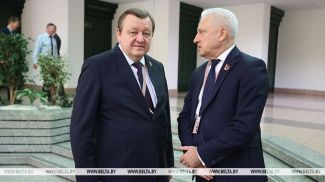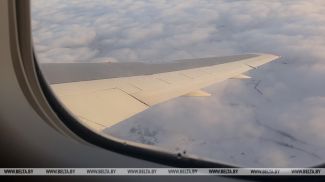MINSK, 22 October (BelTA) – Multilayer electromagnetic shields created by the Material Sciences R&D Center of the National Academy of Sciences of Belarus (NASB) are part of the Japanese spacecraft Mercury Magnetospheric Orbiter, which is on the way to Mercury now, BelTA has learned.
A heavy Ariane 5 booster rocket was launched from the Guiana Space Centre on the night of 19-20 October. The rocket was used to send two spacecraft to Mercury as part of the BepiColombo mission prepared by the European Space Agency (ESA) and the Japan Aerospace Exploration Agency (JAXA). The Japanese spacecraft carries a high-precision magnetometer. The electromagnetic shields created by the NASB Material Sciences R&D Center are designed to enable electromagnetic compatibility of the scientific instruments of the spacecraft.
The Belarusian electromagnetic shields are designed to protect microelectronic instruments and equipment for aerospace applications from external electromagnetic radiation. Electromagnetic and ionizing radiation can destabilize the correct operation of space rockets, aerial, and ground-based systems of double-purpose and special-purpose products.
Belarusian scientists participate in the Mercury research project together with the Space Research Institute of the Russian Academy of Sciences.
The flight to Mercury is expected to take slightly more than seven years. The two spacecraft will reach Mercury in December 2025. The two orbiters are expected to work for at least one year.
ESA and JAXA have been implementing the BepiColombo program since 2008. They intend to study the composition of Mercury's surface and the surrounding space, evaluate the geological history of the planet's development, study the chemical composition of the surface of the planet and its internal structure, analyze the origin of the magnetic field and study its interaction with the solar wind. The cost of the project stands at €350 million.











